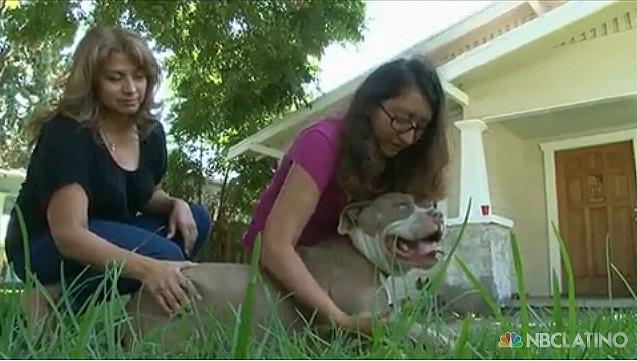Finding a Voice for Autism in Latino Communities

NBC Latino
No doubt the topic of autism is extremely broad. Possibly the biggest challenge for me personally during our process was how to break down such a complex topic for others in a way that would make sense while still telling a compelling story.
Telemundo LA’s Dunia Elvir and I focused our work on children with autism in Latino communities and the transition into adulthood. It is a topic with little, concrete statistical research to date, but a wealth of anecdotal information.
It seemed clear to me the day I met Rita Meza that her family's story would be the final part of this project. Rita Meza had raised 6 kids. Her first, Samantha was diagnosed with autism at age 4 1/2. The Meza family story was compelling and offered hope.
More than 20 years ago, when Samantha Meza was diagnosed, autism research was less prevalent and diagnoses were on a sharp rise. Our big questions were: What happens as these kids become adults? How do families and communities prepare?
We learned there is no single answer. In terms of a child's transition, it really depends on how the level of autism impacts him or her. Autism Speaks Vice President of Family Services says, "...the end goal is that the young adult can be as independent as possible."
For Samantha Meza, at 24 years old, her independence means living outside of the home, going to college, and studying to be veterinary technician.
California may provide a relative potential model for how communities can help families in their transitions. The Regional Center System provides information, resources and connects parents with one another. Rita Meza now actually travels to these centers talking with other parents about her experiences and helping them - through support groups - walk through challenges. The California Legislature has established the Senate Select Committee on Autism and Related Disorders to better assist individuals with autism and their families and also hopes to address access to adequate employment opportunities. All of the experts and advocates we spoke to, agree further research is needed on how to better assist those children with autism in their transition to adulthood.
When we met Andy DaSilva, a 17-year-old with autism, his mom, Ana, expressed a feeling of anxiety about the future. Their story became part 1 of our project.
Now that we had two families to highlight the topic, it was time to boil down the information. Part 1 gave an overview, the bullet point information on what we might expect our NBCLatino.com audience to seek on the topic.
Part 2 became more about the community issues, the challenges facing them, and a story of hope.
In the end, distilling the plethora of research and expert quotes from around the country became a less daunting task when I realized that the power of each story from families who face the challenges of autism every single day, really does speak for itself.
My Lessons from the Field:
**For broadcast folks: If you're in TV, you likely know how to tell stories in a very short, abbreviated way. This of course means you're not able to get ALL information in. Normally, we don't get a lot of time to delve into a topic more deeply and fashion an article for print. I decided that our pieces would supplement one another. In the video spots, the families told their stories. The text article included all the statistical information and expert knowledge necessary to complement the video story.
**For partnerships: If you have a partner, make a formulated plan for what format you want to lay out your project. Dunia and I have two separate audiences. Her video stories were in Spanish to air on local TV. NBCLatino.com targets English-speaking Hispanics. We decided to share our information and resources along the way. Ultimately, Dunia aired two completely different stories than mine, which in our case, led to a broader audiences as a whole and the ability to include more stories.
**Schedule, schedule, schedule: In a busy newsroom there is always the chance of breaking news and being pulled out of your focused work on a big project. It took some time for me to realize that instead of fitting in my project around all of my other assignments, I should asked my supervisors for dedicated days to delve into it. They were very accommodating once we established a schedule.
**The power of the human element: Never underestimate the power of the human element. I suppose this goes without saying, but when I was bogged down with so much data, I felt overwhelmed. I had forgotten for a minute, that this isn't my story to tell. These are the stories of those who I met along the way and who better to communicate it than they, themselves?
**Don't be afraid to be yourself: This one may seem a little hokey. Truth is though, I am not an expert on autism. At first, I became wary of revealing my limited understanding of this topic to others. But when I proclaimed the overwhelming nature of the topic to experts, advocates, and family members, all nodded in agreement and were more than willing to help break it down for me. In each case, I became more well-versed in the subject.

